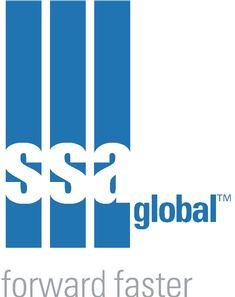SSA Global Technologies is a private company with serious ambitions, according to vice president of global sales and marketing Graeme Cooksley. The company's April 2002 announcement that it intends to acquire Interbiz, the enterprise applications division of Computer Associates (CA), is an outward expression of SSA's determination to re-establish itself as a major force in enterprise resource planning (ERP) software.
|
||
It is a position that the company relinquished in the mid-1990s and has not been able to recoup. SSA emerged from bankruptcy protection under the stewardship of venture capital company Gores Technology in July 2000, and since then has executed well on the restructuring plans laid out by the company.
Further investment in May 2001 from another venture capital investor, Cerberus – now its majority investor – has also contributed to an upturn in the company's fortune. The overall restructuring operation has removed more than $50 million from SSA's cost base, and the company now expects to post a profit of $30 million for its 2002 fiscal year. Furthermore, it signed more than 750 new contracts in the first half of this financial year, 30% of which are new accounts.
The acquisition of Interbiz builds on this success, says Cooksley. It gives SSA a total installed base of more than 9,000 companies, and will enable the company to broaden its appeal across a wider number of vertical sectors. By the end of its next financial year in July 2003, SSA will be a $400 million dollar company, he adds.
Analysts have reacted to the news positively, but with some caution. The loose confederation of products SSA has acquired from CA – CAS, Interbiz Logistics, Interbiz Online, Interbiz Reports, KBM, MANMAN, MasterPiece/Net, MasterPiece/Net HRMS, MAXCIM, MK Logistics, MK Manufacturing, PRMS, and Warehouse BOSS – were neglected by CA. They overlap significantly, and have been branded haphazardly.
"The varied product portfolio now under the SSA GT banner will take some controlling and may act as a distraction," say analysts at IT market research company AMR Research. When combined with the SSA product line, they estimate that less than 50% of customers currently pay support to either company. "In the BPCS product range we have always given away the source code so there is no point charging maintenance if the customer is tweaking the product themselves," counters Cooksley.
The acquisition is welcome news for Interbiz customers, however. "Business applications were not the core competency of our company," CA's CEO Sanjay Kumar told press and analysts at the company's recent user conference in Orlando, adding that users will benefit by being supported by "a company that's exclusively in the ERP market".
Despite the challenges involved in supporting – let alone integrating – such a varied product line, SSA does not plan to stop adding to its portfolio. Over the coming quarters, the company is eyeing up acquisitions in a handful of key technology areas, including collaborative commerce and supply chain management and planning. But whatever companies SSA does acquire, it must convince users that it is committed to supporting these products if it is not to end up like CA, which has historically bought up companies and simply milked their installed bases for support and maintenance. "We aim to protect these brands and add value to our core product," says Cooksley.
Is SSA up to the challenge? Despite the progress it has made since it became a privately held company, annual revenue – projected to be around $150 million for 2002 – is almost half what it was four years ago, when it had already begun its rapid descent.
From a product perspective, however, SSA has revitalised its flagship BPCS ERP suite through partnerships with complementary technology suppliers such as business intelligence software vendor Cognos, supply chain vendor Logility and customer relationship management software supplier Applix.
Chief executive Mike Greenough has committed the company to spend 12% of its annual revenues on research and development – roughly in line with most application software companies. What is questionable is whether this investment will prove sufficient to sustain Interbiz's older, much-neglected products.
Sustaining growth will prove challenging in a soft market, although Cooksley says SSA's greatest asset – its loyal customer base – will enable it to continue its growth path. As a result, securing repeat contracts from these customers is SSA's number one priority. "Through the tough times, our strong brand of loyal customers was our saviour," says Cooksley. But if SSA is to become a manufacturing software leader, it will take more than loyalty.










